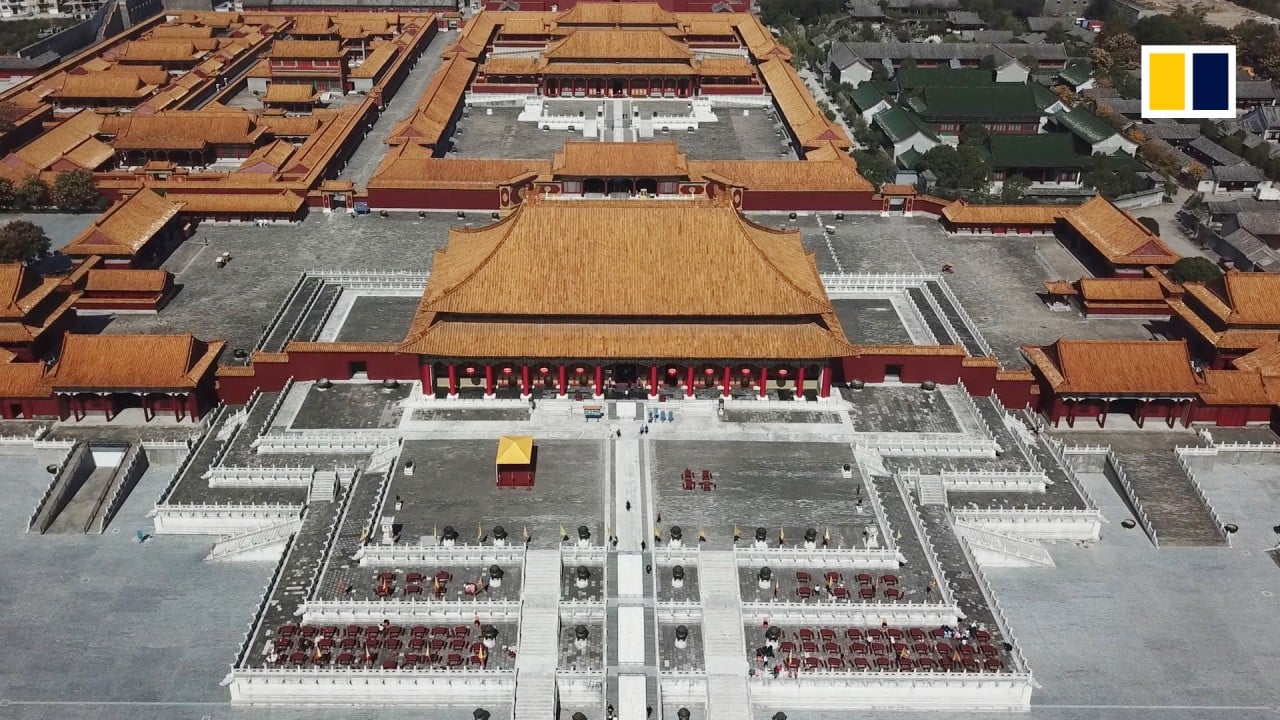
How Hong Kong’s film industry can reinvent itself for a global audience
- Filmmakers have the talent to recapture the imagination of viewers outside China, and the industry should look to collaborate with companies around the world
- Local policy support is as important as good scripts, and funding schemes could be more flexible to allow better international engagement
Hong Kong’s film industry is far from dead, despite what some critics say. There is plenty of potential and new imagination to be explored.
Shock Wave 2 is more than just a standard action epic; it is also a commentary on society, done in a diplomatic style that has been accepted by the censors and at the same time got mainland viewers thinking.

02:29
Inside China’s largest film studio
Even now, the classics still have loyal followers. For instance, Jackie Chan’s Winner and Sinners, My Lucky Stars and Twinkle, Twinkle, Lucky Stars will be released as a Blu-ray box set this March in the UK.
However, Hong Kong cinema cannot rely on these classics to sustain its reputation, given that the export of mainland Chinese films overseas has been growing in the past few years.
Filmmakers could consider focusing on themes that an international audience would enjoy and relate to. One reason Hong Kong films from the 1970s to the 1990s gained wide support was simply because they were entertaining.
Entertainment and social commentary are not mutually exclusive, but skill and creativity are required for the combination to convey messages. This is not impossible, as demonstrated by the local success of the Golden Chicken series.
Scripts with an international audience in mind are important, but so too is local policy support. Current funding schemes could be more flexible in terms of international engagement.

01:18
From Hong Kong to Hollywood: Chinese-American Daniel Wu’s unique journey to movie stardom
The Hong Kong Film Development Council could consider two approaches. First, enable foreign film distributors to apply for funding support if they are distributing Hong Kong films overseas. France’s National Centre of Cinematography and the Moving Image has embraced this strategy with good results. This way, more Hong Kong films could be distributed outside the region. It would also help them be more competitive.
With regard to the Scriptwriting Incubation Programme, the council could consider extending eligibility to overseas screenwriters if they are working on a project with a Hong Kong screenwriter. This would encourage more international writers to work with the Hong Kong film industry and could attract new ideas.
Certainly, the festival circuit remains an important platform to launch Hong Kong films internationally. While Hong Kong’s film talent is capable of attracting mass audiences in mainland China, I am confident they can also do so overseas once again.
Dr Hiu Man Chan is founder and director of the UK-China Film Collab, a non-profit organisation, and lecturer in creative and cultural industries at De Montfort University, UK

